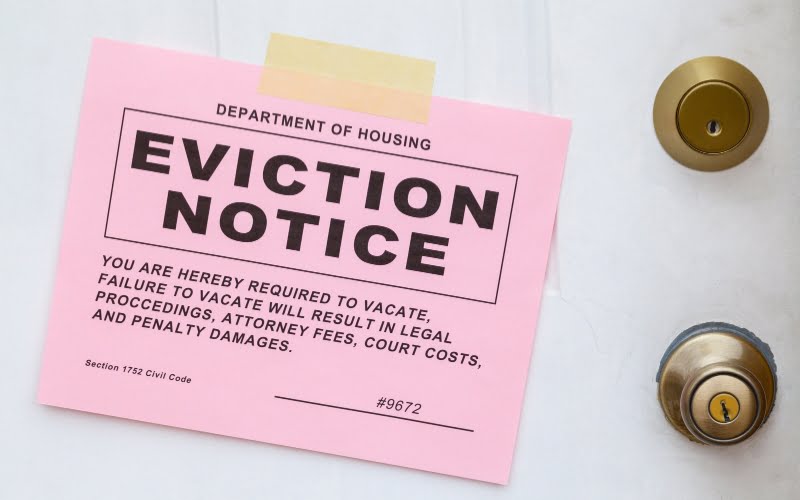Last Updated on March 18, 2024 by Kelvin Nielsen
Evicting a tenant in Florida can be a necessary but costly process for landlords. Understanding the costs involved and Florida’s eviction laws is crucial before initiating the process. The average cost of an eviction in Florida, including filing, court, and service fees, is around $351, though it varies by county.

In Florida, landlords can legally evict tenants for violating their lease terms or failing to fulfill their legal responsibilities under Florida landlord-tenant law. To begin this process, landlords must serve tenants with a 7 days’ notice to comply or vacate, providing the tenant an opportunity to fix the issue or move out.
Keep in mind that the eviction process can differ based on the specifics of the situation, such as whether the person is an invited guest overstaying their welcome, a roommate, or someone claiming an ownership interest in the property.
Navigating these scenarios may require legal advice and adherence to Florida Statutes.
Cost Considerations for Evicting a Tenant
Court Costs and Filing Fees
When evicting a tenant in Florida, you’ll encounter court costs and filing fees. Filing fees in Florida range from $15 to $150, depending on the specific eviction situation. In addition, you may need to pay for a process server to serve the eviction notice to the tenant, which can cost between $30 and $150.
Additional Legal Expenses
Besides court fees, you might need legal advice or representation during the eviction process. The average attorney fee for handling an eviction case is around $500. Bear in mind, this expense can increase if the tenant contests the eviction and is represented by counsel.
Losses and Damages
When evicting a tenant, it’s essential to consider potential losses and damages. These may include:
- Unpaid rent: Months of rent owed, depending on the grace period allowed by Florida state law.
- Property damages: From repairing the rental unit to cleaning up the tenant’s belongings, these costs can add up.
- Loss of time: Managing the eviction process can impact your business days, especially if you’re handling it without a property manager.
In conclusion, the cost of evicting a tenant in Florida can vary based on multiple factors. Keep these cost considerations in mind as you navigate the eviction process to ensure a fair, efficient, and lawful resolution.
Frequently Asked Questions
What are the filing fees for an eviction lawsuit in Florida?
Filing fees for evictions in Florida range from $185 to $340. The actual cost depends on the specific county where the dwelling unit is located.
Can a landlord evict a tenant without a court order in Florida?
No, a landlord in Florida must obtain a court order to evict a tenant. They must serve the tenant with a proper notice and follow the legal eviction process.
What duration is typically expected for the eviction process in Florida?
The eviction process in Florida can vary in duration. It generally takes between 2-4 weeks, depending on various factors such as court schedules and tenant responses.
What steps are involved in obtaining a writ of possession in Florida?
To obtain a writ of possession in Florida, the landlord must first give a proper notice to the tenant. If the tenant doesn’t comply, the landlord can then file an eviction lawsuit. Once the court grants a judgment for possession, the clerk will issue a writ of possession to enforce the eviction.
How can the eviction timeline be extended by a tenant in Florida?
Tenants in Florida can extend the eviction timeline by filing a motion to stay or by requesting a hearing to dispute the eviction. However, these options may not guarantee a successful extension and should be used cautiously.
Disclosure: The content herein isn’t a substitute for advice from a professional attorney. It’s only meant to serve educational purposes. If you have a specific question, kindly seek expert attorney services.
Sources: FL Statutes Chapter 83 Part II

Amanda Rose is a seasoned landlord with 13+ years of expertise in overseeing diverse properties. Her adept management spans single and family homes, along with multi-family apartments and condos, across Wyoming and South Dakota. Her commitment and proficiency have cemented her status as a thriving property management professional.
She is a member of the following organizations: Wyoming Landlord’s Association, National Association of Residential Property Managers (NARPM), Wyoming Apartment Association, South Dakota Multi-Housing Association (SDMHA), and South Dakota Landlord Association (SDLA).







